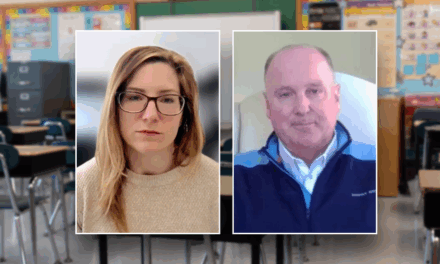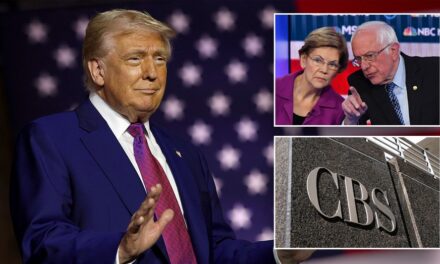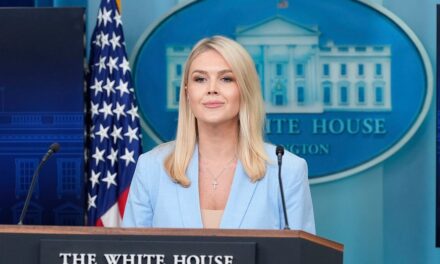The City University of New York (CUNY) has made revisions to a job listing for a “Palestinian Studies” position, following strong criticism and intervention from New York’s Governor Kathy Hochul. The adjustments to the job description reflect a response to concerns regarding the interpretation of the position’s purpose and potential implications in light of ongoing geopolitical tensions.
The initial job listing sparked controversy due to its focus on Palestinian Studies at a time when the Middle East is experiencing heightened conflict, particularly in relation to the Israel-Palestine situation. Critics argued that the job role may not align with the educational and neutral mandate expected from a public university, citing concerns over political bias and academic freedom.
Governor Hochul intervened after reports surfaced about the original wording of the position, which many perceived as leaning towards political advocacy rather than scholarly inquiry. This intervention came as part of Hochul’s broader effort to ensure that public educational institutions maintain a balance in politically sensitive subjects, especially those tied to international conflict.
Initial reactions to the job listing highlighted a recurring theme in discussions about academia’s role in social and political issues. Supporters of the original job description defended it by emphasizing the importance of studying diverse perspectives, particularly in complex historical contexts like the Israeli-Palestinian conflict. They argued that including Palestinian Studies in academia enriches the educational landscape by fostering understanding and dialogue.
Opponents, however, expressed concerns about the potential for academic programs to become vehicles for political indoctrination rather than centers for legitimate scholarship. These critics underscored the need for institutions to remain neutral and to focus on fostering critical thinking without promoting any specific ideological agenda.
In light of the controversy, the CUNY administration decided to modify the job listing. The updated position emphasizes an academic and pedagogical approach, aiming to prioritize unbiased research and scholarship within a framework of social justice and historical accuracy. This revision attempts to address the concerns raised by the Governor and various stakeholders across the political spectrum.
In the revised job post, emphasis was placed on the need for candidates to demonstrate a commitment to academic rigor, respect for diverse viewpoints, and an ability to engage critically with various narratives related to the Palestinian experience. By doing so, CUNY aims to reassure the public and faculty that the program is intended for the pursuit of knowledge rather than political advocacy.
This situation serves as a reminder of the delicate balance that public universities must strike when addressing contentious issues. The geopolitical landscape is often mirrored within educational contexts, where disciplinary boundaries and definitions of academic freedom are continually challenged. Balancing the academic mission with community expectations is a tightrope walk that institutions like CUNY must navigate carefully.
Governor Hochul’s actions reflect a growing trend among state leaders to scrutinize the activities and academic programs of public universities. In recent years, several states have enacted legislation affecting how institutions can address critical race theory, social justice, and international studies. This increasing involvement raises questions about the boundaries of academic autonomy and state influence in educational policy.
The changes to the CUNY job listing illustrate how external pressures can impact the hiring processes within academia. Such interventions encourage university leaders to reconsider how they approach sensitive topics and communicate their objectives to broader audiences, including prospective students, faculty, and funding agencies.
Furthermore, debates surrounding the academic treatment of the Israeli-Palestinian conflict are emblematic of larger cultural and political divides. Scholars engaged in this field often find themselves grappling with the implications of their research and teaching within a polarized environment, where discussions about identity, power, and history can become fraught with tension.
As colleges and universities engage with hot-button issues, the conversation around the goals of educational institutions and their responsibilities in promoting free inquiry persists. The outcomes of such discussions can influence who is welcomed into academic spaces and what subjects are deemed worthy of exploration.
While the revisions to the CUNY job posting may appease some critics, the overall sentiment surrounding the management of sensitive academic topics remains fractious. Advocates for Palestinian Studies argue that understanding this complex history is essential for fostering informed dialogue, while others claim it risks infringing on academic integrity when it intersects with political agendas.
The implications of this incident extend beyond CUNY itself. Other institutions may observe the reactions to CUNY’s revised listing and evaluate how best to approach similarly contentious fields. The prioritization of an academic framework that distances itself from political narratives could set a precedent, influencing curricula nationwide.
In conclusion, the adjustments made to the CUNY job posting demonstrate the challenges that universities face when they attempt to introduce new academic disciplines in a politically charged atmosphere. The incident highlights the broader dynamics at play in contemporary academia, urging scholars and educational leaders to navigate carefully as they curate spaces for discussion and understanding amid ongoing social turmoil.
Reflecting on this situation, the evolution of the CUNY job listing serves as a pivotal case study in the intersection of education, politics, and societal values. It emphasizes the necessity for institutions to approach controversial subjects with sensitivity and commitment to academic rigor, ensuring that their contributions to knowledge extend beyond the confines of specific ideologies. As CUNY moves forward, the hope is that a constructive dialogue can persist, advancing scholarship while respecting the diverse array of perspectives that characterize our world.
































